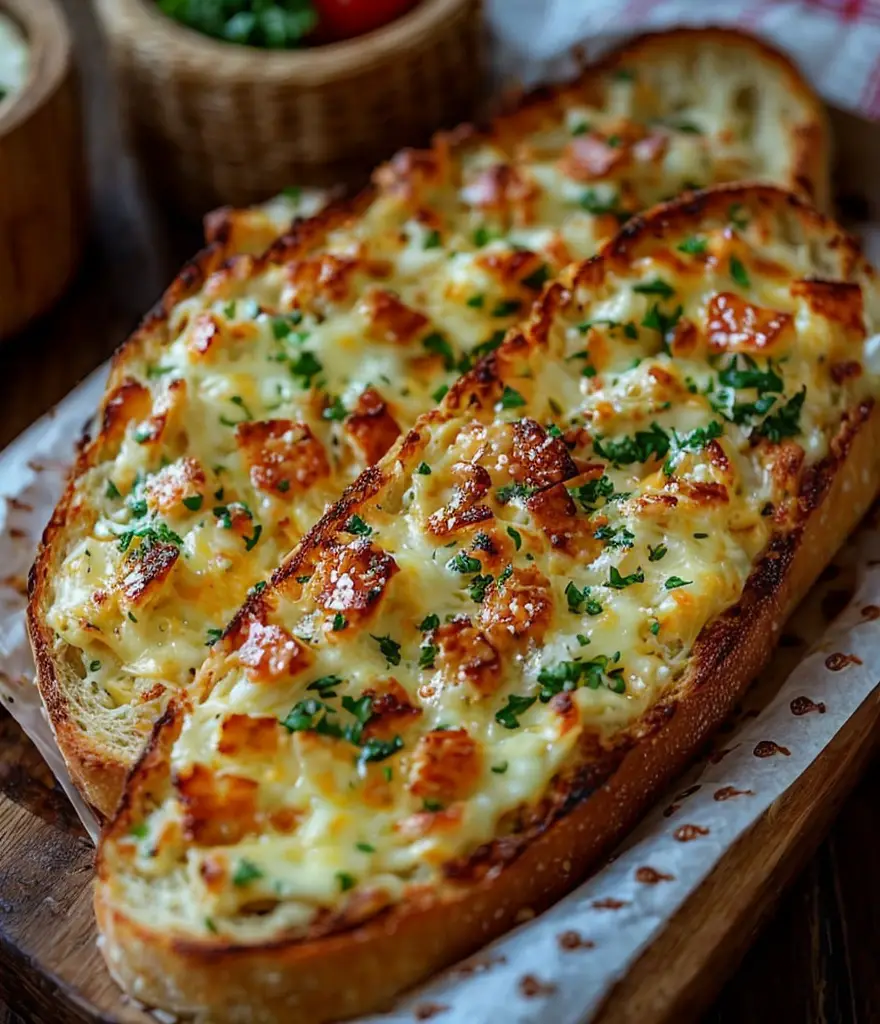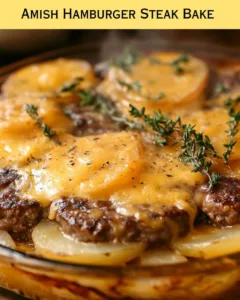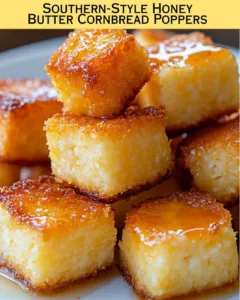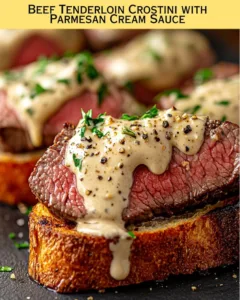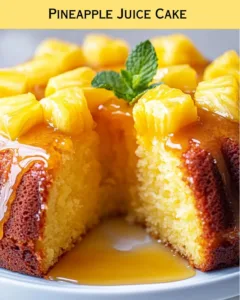Fluffy Cheesy Garlic Bread: The Ultimate Recipe
Fluffy cheesy garlic bread is an irresistible side dish that perfectly complements any meal. With its golden top and a fluffiness that beckons, each bite is a delight. The combination of melted cheese and rich garlic butter creates an explosion of flavor that lingers long after the meal is over. It’s the kind of dish that not only satisfies hunger but also warms the heart, making it a staple at family gatherings and gatherings with friends.
This cheesy garlic bread recipe is straightforward, ensuring that even novice cooks can achieve delicious results. The warm, buttery aroma fills your kitchen as you prepare to serve a dish that truly feels like a hug in food form. The visual appeal, with melted cheese oozing over soft, fluffy bread, is enough to make anyone’s mouth water in anticipation.
Quick Recipe Highlights
- Flavor Profile: Buttery, garlicky goodness meets the richness of melted cheese for a savory delight.
- Texture: Soft and fluffy inside, with a perfectly crisp, cheesy exterior that creates a satisfying crunch.
- Aroma: The intoxicating smell of roasting garlic mingling with the warmth of fresh bread fills the air.
- Visual Appeal: Golden-brown crust loaded with bubbling cheese, making it irresistible.
- Skill Level Needed: Perfect for beginners, but even seasoned cooks will enjoy this easy, rewarding dish.
- Special Equipment: Just a baking sheet and aluminum foil—the essentials for creating this scrumptious bread.
Recipe Overview
- Difficulty Level: Easy enough for a weekday dinner yet impressive enough for gatherings or special occasions.
- Category: Perfect as an appetizer, side dish, or even a delightful snack any time of the day.
- Cuisine: A beloved staple in various cuisines, notably Italian and American, enjoyed globally.
- Cost: Affordable, utilizing basic pantry ingredients along with a few fresh items.
- Season: Great year-round, but especially popular in cool months when comfort food is most desired.
- Occasion: Ideal for parties, movie nights, or as part of a festive holiday feast.
Why You’ll Love This Recipe
Fluffy cheesy garlic bread offers a scrumptious taste and texture that keeps you coming back for more. The blend of garlic and butter enhances any dish, making it a perfect companion for pasta, soups, or salads. Its perfectly toasted surface adds a delightful crunch that contrasts beautifully with the soft, warm bread inside.
Convenience is another reason to adore this recipe. With minimal prep time and straightforward instructions, you can whip it up even on the busiest days. This recipe is not only flavorful but also a great way to quickly elevate any meal, impressing family and guests alike without significant effort.
From a nutritional standpoint, using quality ingredients allows you to control what goes into your dish. Whole-grain bread options can elevate the nutritional profile, while cheese provides calcium and protein. Thus, this recipe can be both a treat and a beneficial addition to your diet.
The social aspect of fluffy cheesy garlic bread cannot go unnoticed. It is a crowd-pleaser, making it the center of attention at gatherings. Friends and family indulge in this delightful dish, creating lasting memories around the table.
Cost-effectiveness is a key factor that enhances the appeal of this recipe. Utilizing basic staples from your pantry and fresh ingredients, you can create a comfort food classic without breaking the bank. It’s accessible, satisfying, and wonderful for any occasion or gathering.
Historical Background and Cultural Significance
The origin of cheesy garlic bread can be traced back to ancient times when garlic was celebrated not only for its flavor but also for its medicinal properties. Cultures around the world have incorporated garlic into various dishes to enhance flavor and health benefits.
In Italian cuisine, garlic bread is commonly served alongside pasta to complement the meal. Over the years, this simple dish has evolved, integrating various cheeses and herbs, making it a versatile staple in modern cooking. As it spread to different regions, local variations began to emerge, showcasing unique flavors and ingredients while maintaining the essence of the original recipe.
Within American cuisine, garlic bread gained popularity as a side dish for Italian-American meals. The rise of pizzerias in the mid-20th century saw the dish become a beloved accompaniment to pizza, further embedding it into the cultural food landscape. Today, it’s a common offering in restaurants and at home, cherished by families.
Regional variations have also surfaced, with some versions featuring herbs such as parsley or oregano, while others may use spreads like pesto. These adaptations highlight the dish’s adaptability and enduring popularity across cultures.
Ingredient Deep Dive
Garlic, a central ingredient in this recipe, not only enhances flavor but is celebrated for its health benefits. It’s rich in antioxidants and has been linked to improved heart health. When selecting garlic, opt for firm bulbs, free of blemishes. Store it in a cool, dark place to maintain freshness, as it can sprout if not stored properly. For a different flavor profile, consider substituting fresh garlic with roasted garlic, which adds a creamy, sweet element to your dish.
Butter is another essential component, offering richness and depth. Unsalted butter is preferred, allowing you to control the seasoning of your bread. When selecting butter, look for high-quality brands that use pure cream. Proper storage is crucial; keep it wrapped in the fridge to preserve its freshness. If you’re looking for a healthier option, olive oil can be a wonderful substitute, imparting a unique flavor while offering beneficial fat.
Cheese serves as the crowning glory of fluffy cheesy garlic bread. Varieties such as mozzarella provide supple meltiness, while parmesan adds sharpness. When choosing cheese, consider both flavor and meltability. Store cheese in wax paper or parchment to breathe in the fridge. For a twist, try adding a blend of cheeses, such as cheddar for a sharper taste or goat cheese for creaminess.
Common Mistakes to Avoid
- Using stale bread: Fresh bread is essential for achieving the desired fluffy texture. Stale bread will result in a denser and less enjoyable outcome.
- Overbaking: Keep an eye on the bread while baking to avoid burning. Aim for a golden-brown top for the best flavor and texture.
- Under-seasoning: Garlic and butter should be generously seasoned. Taste before applying, ensuring the flavors are well balanced.
- Skipping the resting time: Allowing the bread to cool slightly before slicing helps maintain its structure, preventing it from falling apart.
- Not using enough cheese: Cheese is the star of the show, so don’t be shy! Generously layer it for a gooey texture.
- Neglecting portion control: While it’s tempting to overindulge, serving the right portions ensures a delightful experience without waste.
- Using the wrong type of garlic: Fresh garlic is ideal for this recipe; avoid garlic powder as it lacks the punch needed.
- Not preheating the oven properly: Ensure the oven is preheated to achieve even baking and a perfect crust.
Essential Techniques
Using good quality garlic is vital for flavor impact. To enhance its natural richness, you can roast it in the oven until soft, which creates a buttery consistency. Mastering the technique of infusing garlic into butter ensures that each bite is incredibly flavorful. Look for visual cues, like the garlic turning golden, to indicate readiness.
Perfectly baking your fluffy garlic cheesy bread requires attention to temperature. Position your baking rack in the center of the oven for even heat distribution, ensuring the bread does not burn on the bottom. Trust your senses; look for the golden crust and bubbling cheese as indicators of doneness.
Pro Tips for Perfect Fluffy Cheesy Garlic Bread
Add a sprinkle of herbs for a fresh finish—it elevates the dish’s flavor. Fresh parsley or basil can add brightness and an extra layer of taste.
Experiment with different cheeses; mixing varieties can introduce new flavors and textures, making each batch unique. Consider trying gouda for smokiness or pepper jack for a spicy kick.
Spread softened butter evenly to ensure every part of the bread is infused with flavor, contributing to that perfect bite.
Let the garlic butter sit briefly before applying it to enhance integration of flavors; this small step can significantly amplify taste.
For a crispier crust, consider toasting it under the broiler for the last minute of cooking. Just keep a close eye to prevent burning.
If time allows, let the dough rise slightly longer to achieve an even fluffier interior. The longer fermentation promotes a lighter texture and tastier loaf.
Variations and Adaptations
Regional variations can include local ingredients; you might try adding diced jalapeños for a kick of heat or using herbs native to your region. Seasonal adaptations include using fresh herbs in the summer or adding roasted vegetables for additional nutrition and flavor.
Dietary modifications can also be made to cater to needs. A gluten-free bread option is easily achievable with gluten-free flour blends, while vegan butter can substitute dairy to suit plant-based diets. For those watching their carbs, using almond flour could create a low-carb version.
Flavor variations are endless—add sun-dried tomatoes or a splash of balsamic for unexpected sweetness and acidity. Changing the type of cheese used can also lead to new and exciting flavor profiles.
For texture modifications, consider briefly grilling the bread before adding toppings for a smoky background that complements the garlic and cheese. Presentation alternatives may include cutting the bread into elegant triangles or serving in a rustic wooden board style for that casual, inviting feel.
Serving and Presentation Guide
Plating techniques can enhance the feel of your dish. Consider slicing the garlic bread into individual servings and arranging them on a platter with sprigs of fresh herbs for a colorful touch.
Garnishing with additional cheese or herbs right before serving adds visual appeal and draws attention. Pairing it with fresh marinara or dipping sauces invites guests to enjoy a more interactive meal.
Traditional accompaniments often include pasta dishes or salads, while modern serving suggestions incorporate serving alongside charcuterie boards or soups. Temperature considerations are vital; the bread should be warm but not steaming hot to allow for better handling.
Portion control plays a role in serving; offer a few slices per person for samplings, encouraging guests to return for more without overwhelming them initially.
Wine and Beverage Pairing
When it comes to wine pairings, a crisp white like Pinot Grigio offers refreshing acidity that balances the richness of the cheese and garlic. For those who prefer red, a light-bodied option like Chianti complements the flavors without overwhelming them.
Non-alcoholic alternatives, such as sparkling water with lemon, can cleanse the palate while adding a refreshing contrast. If coffee or tea accompanies your meal, opt for a lighter brew, like green tea, to match the bread’s savory profile.
Temperature considerations are vital when serving beverages—wine should be chilled, while any teas should be brewed fresh and served warm for the best experience.
Storage and Shelf Life
Storing fluffy cheesy garlic bread is simple. Wrapping it tightly in aluminum foil or placing it in an airtight container helps keep it fresh for up to three days at room temperature.
For longer storage, freezing is a great option. Simply slice the bread, wrap individual portions, and place them in a freezer-safe bag; they can stay at peak freshness for up to three months. Signs of spoilage include an off smell or visible mold.
Reheating instructions are straightforward; simply pop the sliced bread in the toaster or oven until warmed through and the cheese is bubbly again. For best results, cover with foil to retain moisture and avoid drying it out.
Make Ahead Strategies
Making fluffy cheesy garlic bread ahead of time is doable. Prepare the garlic butter blend and store it in the fridge, ready to go just before baking. This keeps flavors fresh and intense while saving prep time on the day of serving.
Consider par-baking the bread for a few minutes before storing it. This allows you to simply finish baking when needed, providing a freshly baked taste without extensive waiting time.
Quality impact assessment is essential when preparing ahead. The bread’s texture may slightly change over time, but reheating properly can revive much of its original fluffiness.
When assembling your bread for storage, keeping toppings separate is key. Add cheese just before baking to ensure it melts evenly and produces that irresistibly gooey texture.
Fresh element additions, like herbs, can be incorporated before serving. Chopped parsley or oregano added just after baking freshens and elevates the flavor.
Scaling Instructions
Halving the recipe is simple. Just divide all ingredient quantities by two, and adjust cooking time, especially if using a smaller baking dish; monitor doneness closely.
Doubling or tripling the recipe can also be done without hassle, using larger baking sheets or multiple trays. Be prepared for adjustments in cooking times, as your oven’s temperature may fluctuate with more items inside.
Equipment adjustments may include using multiple baking sheets or pans to prevent overcrowding, ensuring even baking. Be aware of timing modifications; larger quantities may need slightly longer to bake thoroughly.
When considering storage for large batches, using aluminum foil to cover portions keeps them fresh and ready for reheating without losing flavor.
Nutritional Deep Dive
The macro breakdown of fluffy cheesy garlic bread reveals a balance of carbohydrates from the bread, fats from the butter, and protein from the cheese, creating a satisfying energy source.
Micronutrient analysis indicates the potential for various vitamins and minerals, particularly calcium from the cheese and antioxidants from garlic. This combination contributes to overall health despite being a comfort food.
Health benefits of this bread can be maximized through ingredient choices. Opting for whole grain bread increases fiber content, while using olive oil instead of butter can add healthier fats.
Dietary considerations come into play for those monitoring their intake. By adjusting fat sources and bread type, individuals can tailor the recipe to fit their nutritional goals without sacrificing deliciousness.
For portion analysis, consider an average serving size of one slice for a balanced intake. Strategies for weight management may involve pairing with lighter meals, such as salads, to create a well-rounded dining experience.
Dietary Adaptations
For a gluten-free version of fluffy cheesy garlic bread, replace all-purpose flour with a gluten-free flour blend, ensuring it maintains similar textures.
Dairy-free or vegan adaptations can utilize plant-based cheese along with dairy-free butter, ensuring that those with dietary restrictions can still enjoy the same rich flavors.
Low-carb dieters may substitute regular bread with cloud bread or cauliflower crust, creating a satisfying option that keeps carbs in check while still delivering intense cheesy flavors.
Keto enthusiasts can explore almond flour alternatives for a low-carb base, ensuring it fits into their dietary regimen while remaining delightful.
A paleo version would focus on using natural ingredients like almond flour and coconut oil, avoiding processed sugars or dairy to align with paleo guidelines.
Low-FODMAP variations can replace garlic with garlic-infused olive oil, balancing flavors without triggering digestive concerns for those sensitive to FODMAPs.
Troubleshooting Guide
If your garlic cheese bread turns out too dry, revisit the butter content; under-spreading can lead to a less flavorful and dryer side. Ensuring that the loaf is adequately covered will mitigate dryness.
Flavor balance is critical; if your garlic bread tastes bland, boost the seasonings in your garlic butter. Adding fresh herbs can enhance flavors significantly, providing freshness.
Temperature problems often arise when baking improperly; checking the accuracy of your oven’s temperature can prevent undercooking or overcooking in the future.
Equipment challenges could involve unforeseen issues with baking sheets or ovens overheating; be prepared with additional trays just in case, not all equipment may equally distribute heat.
Ingredient substitutions may lead to unexpected results; always taste your batter before baking to adjust flavors as needed. If you lack fresh herbs, a good quality dried option can work remarkably well.
Timing concerns often catch new cooks by surprise; make use of a kitchen timer to keep track of cooking times and check bread earlier rather than risk overbaking.
Recipe Success Stories
Community feedback on this cheesy garlic bread recipe has been overwhelmingly positive, with many celebrating its simplicity and flavor. Readers find it a fantastic addition to family-meal rotations, filling their homes with delicious aromas.
Variation successes highlight the versatility of the recipe. Many have tried different herb combinations, creating new favorite versions they share among friends and family.
Adaptation stories reflect how this garlic bread brings people together, whether for casual gatherings or special events, each batch enjoyed and cherished.
Reader suggestions prompt exciting and innovative changes, leading to a community where culinary creativity thrives.
Photography tips shared in the comments have encouraged many to present their fluffy cheesy garlic bread in creative and visually appealing ways, elevating the experience even further.
Frequently Asked Questions
Can I make cheesy garlic bread ahead of time?
Absolutely! You can prepare the garlic butter and even bake the bread ahead of time. Reheat it when you’re ready to serve for optimal freshness. Ensuring it’s wrapped properly will maintain moisture and flavor.
What type of bread works best for this recipe?
French or Italian bread are excellent choices due to their sturdy texture and ability to hold toppings well. You can also experiment with other types, though results may vary.
How do I store leftover garlic bread?
Wrap leftover garlic bread tightly in foil or store it in an airtight container. It keeps well at room temperature for about three days. For longer storage, freeze it in a foil wrap for up to three months.
What can I serve with cheesy garlic bread?
This bread pairs beautifully with pasta, soups, stews, or salads. It also makes a delicious side for any main course or as an appetizer at parties.
Is it possible to make this recipe vegan?
Yes! You can easily make this recipe vegan by using plant-based butter and cheese. Many brands offer enjoyable alternatives that will still provide a cheesy flavor.
Can I customize the flavors of this recipe?
Definitely! Feel free to experiment with adding spices, herbs, or even combining cheeses to get your favorite flavor combinations.
How can I achieve a crispier crust?
The best way to achieve a crispier crust is to bake the garlic bread in the oven until golden brown and try broiling it for a minute or two at the end while keeping a close watch.
What if my cheese isn’t melting?
If your cheese isn’t melting as you’d like, ensure it’s shredded or cut into small pieces. Also, use cheese with good melting qualities, like mozzarella or fontina, for best results.
Can I add extras, like vegetables or meats?
Absolutely! Feel free to pile on toppings like sautéed mushrooms, chopped peppers, or even cooked bacon. These additions can elevate the flavor and make it heartier.
What to do if I overbake the bread?
If you’ve overbaked the bread, consider serving it with a dip like marinara or olive oil, as it can help mask the dryness. For next time, keep an eye on cooking times for ideal results.
Additional Resources
For those interested in expanding their culinary repertoire, consider exploring related recipes featuring garlic and cheese, such as creamy garlic pasta or cheesy stuffed peppers.
Technique guides on bread-making can further enhance your skills, providing you with insights on how to perfect your craft in the kitchen.
Understanding ingredient information can lead to informed choices when bringing garlic and cheese into your meals. Look for fresh, high-quality options that will elevate your dishes.
Equipment recommendations can aid your baking experience; investing in good-quality baking sheets can make a noticeable difference in results.
Lastly, exploring seasonal variations can inspire your cooking. Experimenting with seasonal ingredients like spring garlic or fresh herbs can bring delightful twists to your garlic bread recipes.
Join the Conversation
Sharing your culinary adventures on social media can inspire others to recreate this fluffy cheesy garlic bread at home. Don’t forget to capture stunning photos of your delicious results to showcase your skills!
Engaging in recipe reviews allows for valuable feedback, encouragement within the culinary community, and helpful tweaks for future batches.
Inviting conversations about recipe variations fosters an interactive space where delicious creativity thrives, and everyone brings their own touch to the beloved cheesy garlic bread recipe.
The Recipe
Fluffy Cheesy Garlic Bread
Serves: 8 servings
Prep Time: 15 mins
Cook Time: 25 mins
Total Time: 40 mins
Kitchen Equipment Needed
- Baking sheet
- Aluminum foil
- Mixing bowl
- Knife for slicing
- Brush for butter
Ingredients
- 1 large loaf of French or Italian bread
- 1/2 cup unsalted butter, softened
- 4 cloves garlic, minced
- 1 cup shredded mozzarella cheese
- 1/2 cup grated Parmesan cheese
- Salt and pepper, to taste
- 1 tablespoon fresh parsley, chopped (optional)
Directions
- Preheat your oven to 375°F (190°C).
- In a mixing bowl, combine the softened butter, minced garlic, salt, and pepper until smooth.
- Cut the bread in half lengthwise and spread the garlic butter mixture evenly on both halves.
- Sprinkle the mozzarella and Parmesan evenly over the buttered sides of the bread.
- Wrap the halves in aluminum foil and place them on a baking sheet.
- Bake for 15 minutes covered with foil, then remove foil and bake for another 10 minutes, until cheese is melted and bubbly.
- Remove from the oven and let cool slightly before slicing. Garnish with fresh parsley if desired.
Recipe Notes
- Substitute softened herbal butter for a flavor twist.
- Use a variety of cheese for different flavor profiles.
- Feel free to add spices or herbs to the butter for extra flavor.
- Store leftovers wrapped tightly to keep them fresh.
- Reheat in the oven for best results.

